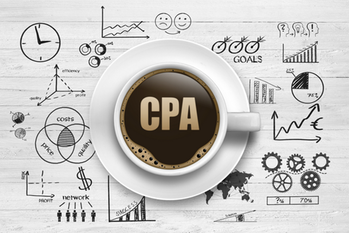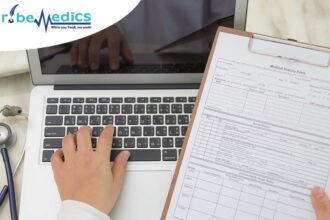If you’ve been considering an accounting career that can take you beyond local markets, you’ve probably heard about the CPA license. The initials stand for Certified Public Accountant, and in 2025, the qualification still carries strong weight with employers, regulators, and clients worldwide. Whether you live in the United States or work abroad, the rules for CPA eligibility have enough common ground to give motivated candidates a clear path, as long as they meet the education, exam, and experience criteria set by the state board they choose.
What is CPA
People asking What is CPA are often new graduates or mid-career professionals thinking about boosting their credentials. A CPA is someone who has met the academic requirements set by a US state board of accountancy, passed all sections of the Uniform CPA Exam, completed the required work experience, and agreed to follow professional conduct rules.
While the credential is awarded by US jurisdictions, its recognition extends into multinational corporations, public accounting firms, and even government agencies abroad. In many cases, employers see it as proof that the person has the technical accounting knowledge, ethical grounding, and discipline needed for high-responsibility roles.
Education Requirements in 2025
Most US jurisdictions still require 150 semester hours of education for CPA eligibility. For many candidates, that means a bachelor’s degree in accounting or a related field plus additional coursework. The extra hours can come from a master’s program, a graduate certificate, or even targeted undergraduate classes.
The coursework usually needs to include a defined mix of accounting and business subjects. Financial accounting, taxation, auditing, and managerial accounting are almost always required. Business law, economics, and finance are also common. Because each state sets its own credit hour requirements, matching your transcripts to the jurisdiction’s list before applying is smart planning.
CPA Eligibility for International Candidates
For candidates outside the US, the main question is whether their degree will count toward CPA eligibility. This is where an evaluation service comes in. State boards use approved agencies to check whether a foreign degree is equivalent to a US bachelor’s degree and whether it covers the right accounting and business subjects.
If your home country’s degree is shorter than the US standard or light on accounting credits, you may need extra coursework before you can sit for the exam. For example, a commerce graduate from a three-year program might have to complete additional auditing or business law classes. The process typically involves having official transcripts sent directly from your university to the evaluation agency, which then issues a report to the state board.
Experience Requirements
The CPA license also comes with an experience requirement. Most states ask for one or two years of accounting work verified by a licensed CPA. The work can be in public accounting, corporate finance, government, or even teaching at the right level, depending on the jurisdiction’s rules.
It’s worth checking whether your supervising CPA needs to be licensed in the same state you’re applying to. Some boards are strict about this; others are flexible. Sorting that out early can save you from having to redo your experience under a different supervisor later.
Ethics Component
Many state boards also require an ethics exam. Some use the AICPA’s online ethics course and test, while others have their own. It’s not part of the Uniform CPA Exam, but it does need to be passed before the license is issued.
CPA Exam in 2025
In 2025, the CPA Exam follows the CPA Evolution model. There are three core sections: Financial Accounting and Reporting (FAR), Auditing and Attestation (AUD), and Taxation and Regulation (REG). You then choose one discipline section, such as Business Analysis and Reporting, Information Systems and Controls, or Tax Compliance and Planning.
The change allows candidates to cover the foundational material while also proving strength in a chosen specialty. Each section is computer-based and can be taken in any order, yet most candidates map out a sequence that suits their study habits and deadlines.
Application Process and Fees
Applying to sit for the CPA exam involves picking a state board, sending in transcripts and required documents, paying an application fee, and waiting for a Notice to Schedule (NTS). Once the NTS is in hand, you book your test dates through the approved testing centers.
Fees vary but is usually between 900 to 1400 USD for all four sections for US-based candidates. International applicants also budget for transcript evaluation and higher testing fees.
Avoid These Common Mistakes
Some candidates rush to apply without verifying their coursework matches the jurisdiction’s rules, leading to delays when extra classes are required. Others pass the exam but then find their work experience doesn’t qualify because it wasn’t supervised by the right person. The most successful candidates check both their academic background and their work situation before sending in the first application.
Final Thoughts
By 2025, the process for CPA eligibility is structured enough that candidates who plan ahead can move from application to license without unnecessary delays. The path to becoming a CPA in 2025 remains clear for candidates who match their academic records, experience plans, and testing schedule to the jurisdiction they choose. While the process can seem detailed, candidates who prepare early and align their education and career experience have a smooth transition from application to licensure.
For candidates who prefer guided support, structured study plans, and resources that match both the exam format and licensing requirements, Zell Education offers best CPA training programs for both US and international candidates, helping them meet every step of the CPA eligibility process with confidence.

















